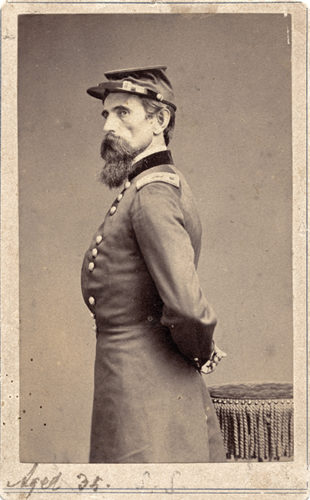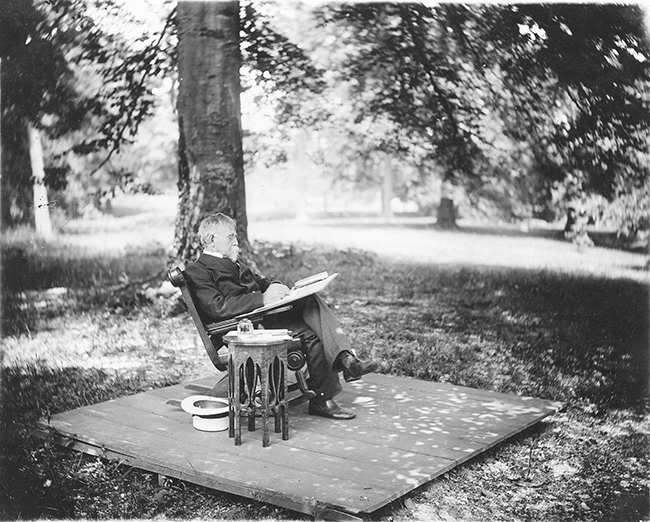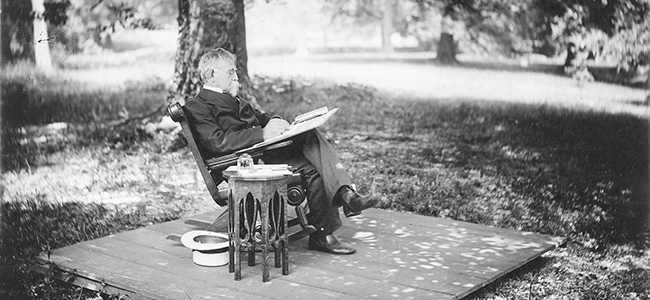
BY ELIZABETH ANDREWS
There are two types of Lew Wallace fans, says WTIU Senior Producer and Director Ron Prickel: those who argue that the 19th century Hoosier’s greatest accomplishment was writing Ben-Hur: A Tale of the Christ, and those who insist that Wallace’s service as a Civil War general was his most significant contribution.
Prickel doesn’t take sides in his forthcoming documentary, Lew Wallace: Shiloh Soldier, Ben-Hur Bard, set to air toward the end of 2015. He hopes to instead reveal the many sides of the Brookville, Indiana, native, who also served as governor of the New Mexico Territory, U.S. minister to the Ottoman Empire, and a commissioner in the Abraham Lincoln assassination trial.
“My biggest challenge is deciding what not to include,” says Prickel. “It’s amazing all of the things this guy touched in his lifetime.”
Born in 1827, Wallace joined Zachary Taylor’s army in the Mexican-American War in 1846. From there he returned to Indiana and began a law practice, while also training an independent militia that became the Indiana 11th Infantry during the Civil War. Appointed adjutant general by Gov. Oliver Morton, he fought the Confederate forces at Fort Henry and Fort Donelson before the infamous Battle of Shiloh.
“The Battle of Shiloh is what followed him the rest of his life,” says Prickel, who reveals in the documentary that Wallace became a scapegoat for the perceived failure of the operation. “It was a cover-up. Wallace got blamed for taking the wrong route into battle, but [Ulysses S.] Grant later wrote a letter exonerating him.”
Wallace went on to not only fight off Confederate troops at the Battle of Monocacy while the Union assembled forces to defend the capital, but also to sign Billy the Kid’s death warrant, befriend Sultan Abdul Hamid II of Turkey, and pen the historical epic Ben-Hur, which remained a best-seller for half a century and the basis for the 1959 Academy Award–winning movie.
“The average person doesn’t know who Lew Wallace is,” says Prickel. “Most of the time the response I get is, ‘Lew who?’ But as soon as they start hearing a little about his life, they get really excited.”
Support for the WTIU documentary comes from the IU Credit Union, IU Office of the Vice President for International Affairs, Montgomery County Visitors & Convention Bureau, and Indiana Humanities.









